This summer, I traveled to Fiji with ThinkPacific for the Environment and Sustainability project. I was quite nervous before I left. I had read plenty of content from ThinkPacific to prepare for cultural differences, filled out lots of paperwork, and had a groupchat with the other Laidlaw scholars on my team. Still, I was probably more anxious than excited, feeling like I had no idea what to expect once I arrived in a country 8,000 miles away – and that was if I managed to navigate the flights! I had a million questions swirling through my head: would my host family like me? Would there be food I could eat? What if the other scholars already all knew each other? What would it be like living in a village?
After I did successfully manage to navigate the airports and layovers and landed in Fiji, I met my new team. It was exciting to meet Laidlaw scholars from other universities. Unlike my friends going on other ThinkPacific trips, I was the only one from my university, Tufts, in the group. In addition, I was the only student from an American university, so there was an additional bit of cultural exchange for me within our own group. We learned that we would be working with a Fijian youth empowerment group called Alliance for Future Generations (AFG) for the first half of our project, facilitating workshops about climate change and sustainability with villagers ages 18 to 35. Soon, we were on a truck headed to Rarabasaga, a small agricultural village in the highlands of Viti Levu.
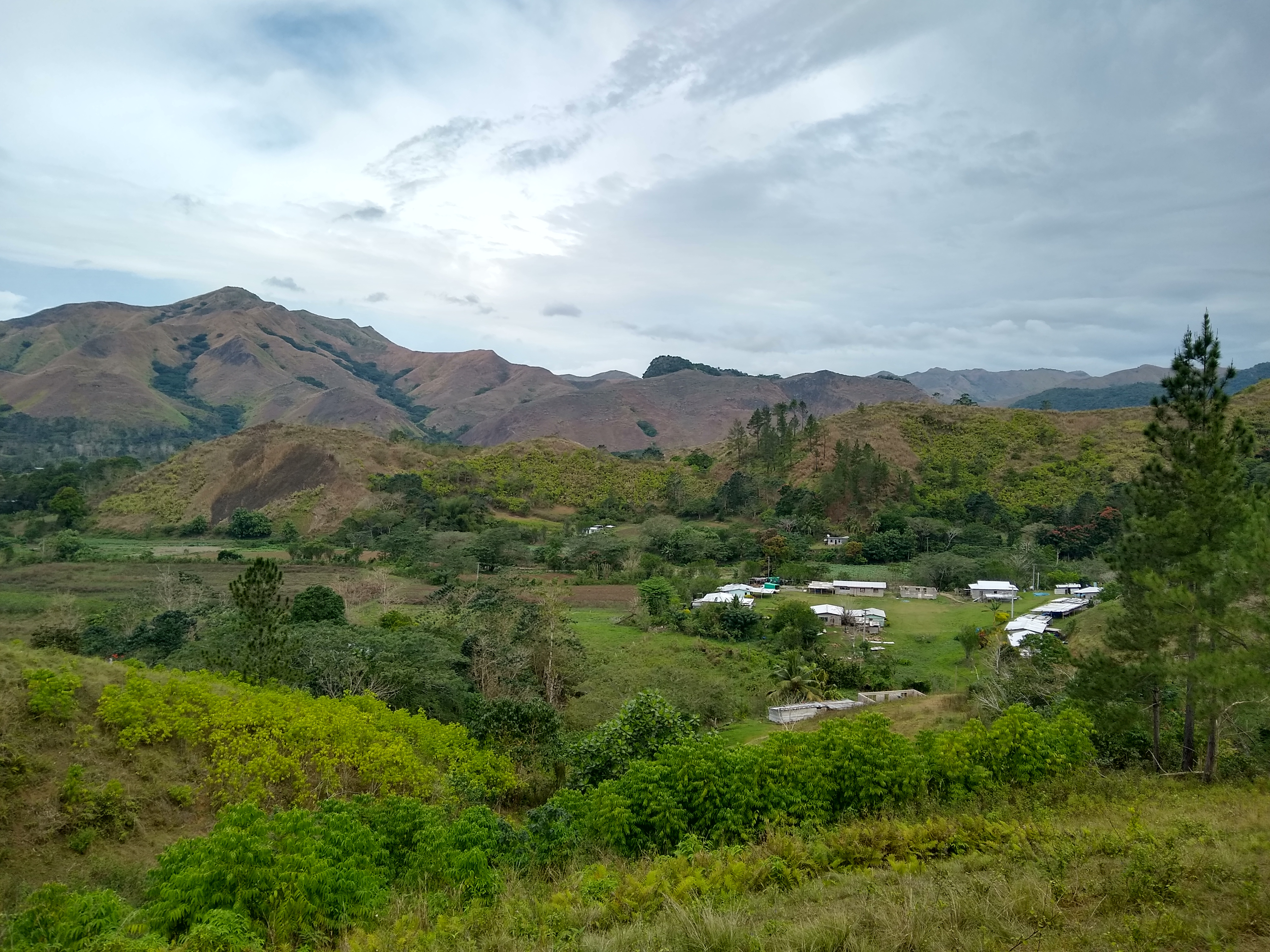
We were quickly welcomed into Rarabasaga with a kava ceremony and dinner with our host families. I was overwhelmed with new names and new faces and language barriers and the instructions for using the bathroom, but even after the first day, I was pleasantly surprised by the warmth and kindness of everyone and their efforts to make us feel at home. Feeling discomfort and unfamiliarity enhanced my experience, really encouraging me to push myself and immerse myself in the village’s culture.
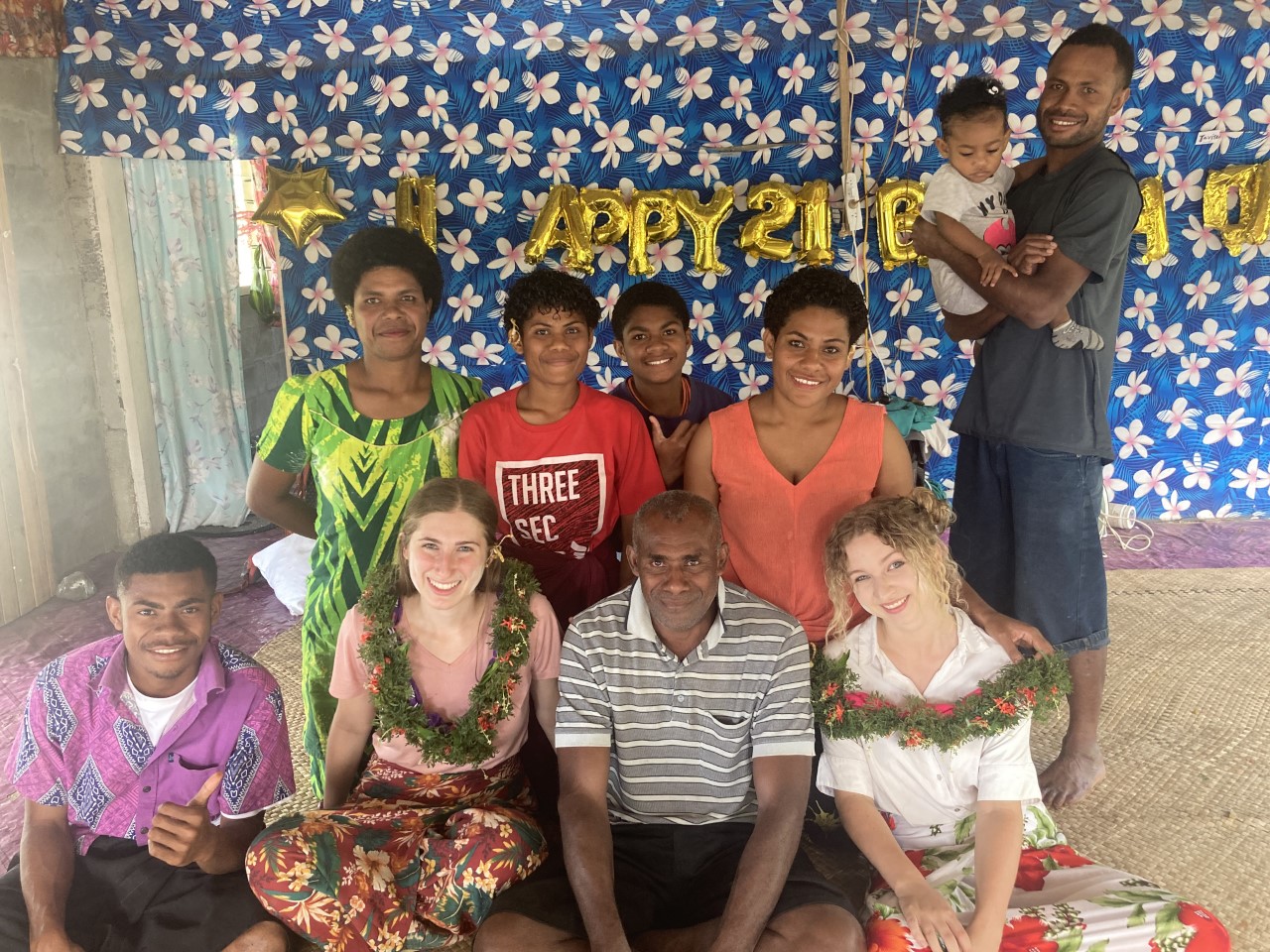
One thing that was very different for me was people’s relationship with time. There is the tendency to be more relaxed about scheduling and timing than I was accustomed to. Being someone who always arrives early, this was challenging and, at first, frustrating, for me. I think this discrepancy with my personal value of timeliness helped me become more patient. Language barriers also encouraged me to be more patient, as conversations were often longer and less directly “productive.” However, this forced me to slow down and really engage with people, rather than just trying to get a quick answer to a question. Having a conversation was an experience, not simply an exchange of information.
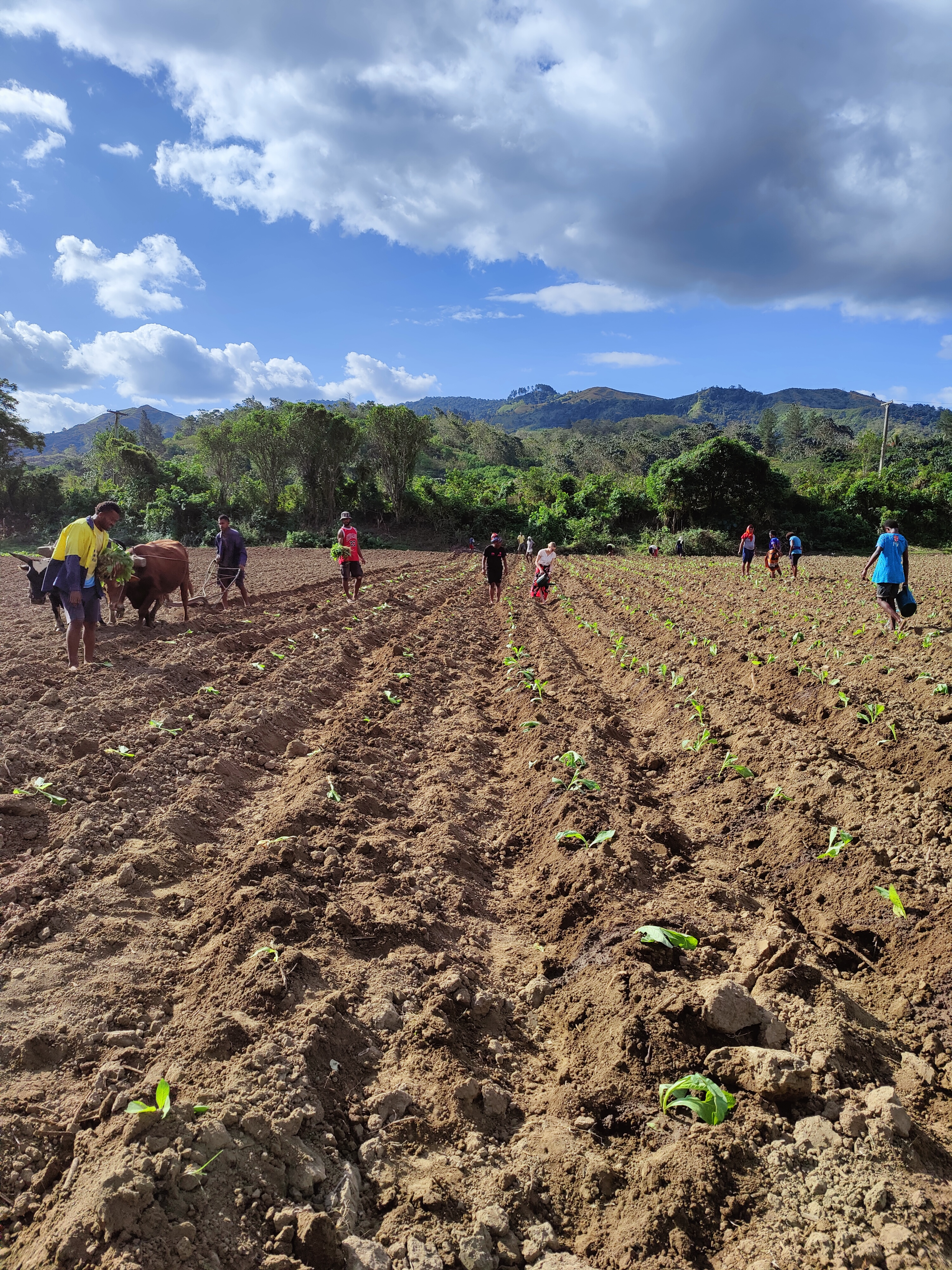
With AFG, we helped facilitate daily workshops with the villagers on topics such as the UN’s sustainable development goals and the ocean. The Pacific is extremely vulnerable to climate change and is impacted disproportionately by this crisis. Thus, climate change is largely pertinent to everyday life of Fijians. However, we realized that the planned topics of the workshops were not completely practical or relevant in regard to how the villagers were experiencing climate change, as Rarabasaga is inland and were mainly experiencing agricultural changes and intensified storms. Also, the workshops were being conducted in English, which meant villagers who were less fluent weren’t able to fully benefit from the information or really engage in the discussions. Over conversations with the villagers, AFG, our program coordinators, and amongst our team, we tried to understand how we could be a better resource for the village. Through these discussions and really just being observant and open to learning, we were able to identify issues most important to the village and ways we could actively contribute without overstepping, while using our own unique knowledge and skills – for example, some of our team study Environmental Science while others like myself are involved in climate activism. We were able to redesign some aspects of the project and implement changes into practice. For example, we worked with the village youth to develop disaster risk reduction plans. We organized sessions about mental health and how to care for their emotional wellbeing in the wake of catastrophic climate events, as these topics are often taboo in village settings. We helped them register their village youth organization with the government so they can receive grants, as well as campaigned our program to support fundraising efforts to build flush toilets, since improving sanitation is a top concern for villagers. And, we pushed for sessions to be translated to Fijian when possible and learned more of the regional dialect ourselves, which improved engagement from all participants (shoutout to Epa from AFG for being an amazing translator!!). Creativity and flexibility were really important in this process, as we juggled many ideas and priorities, balanced language and cultural differences, and faced new changes and challenges.
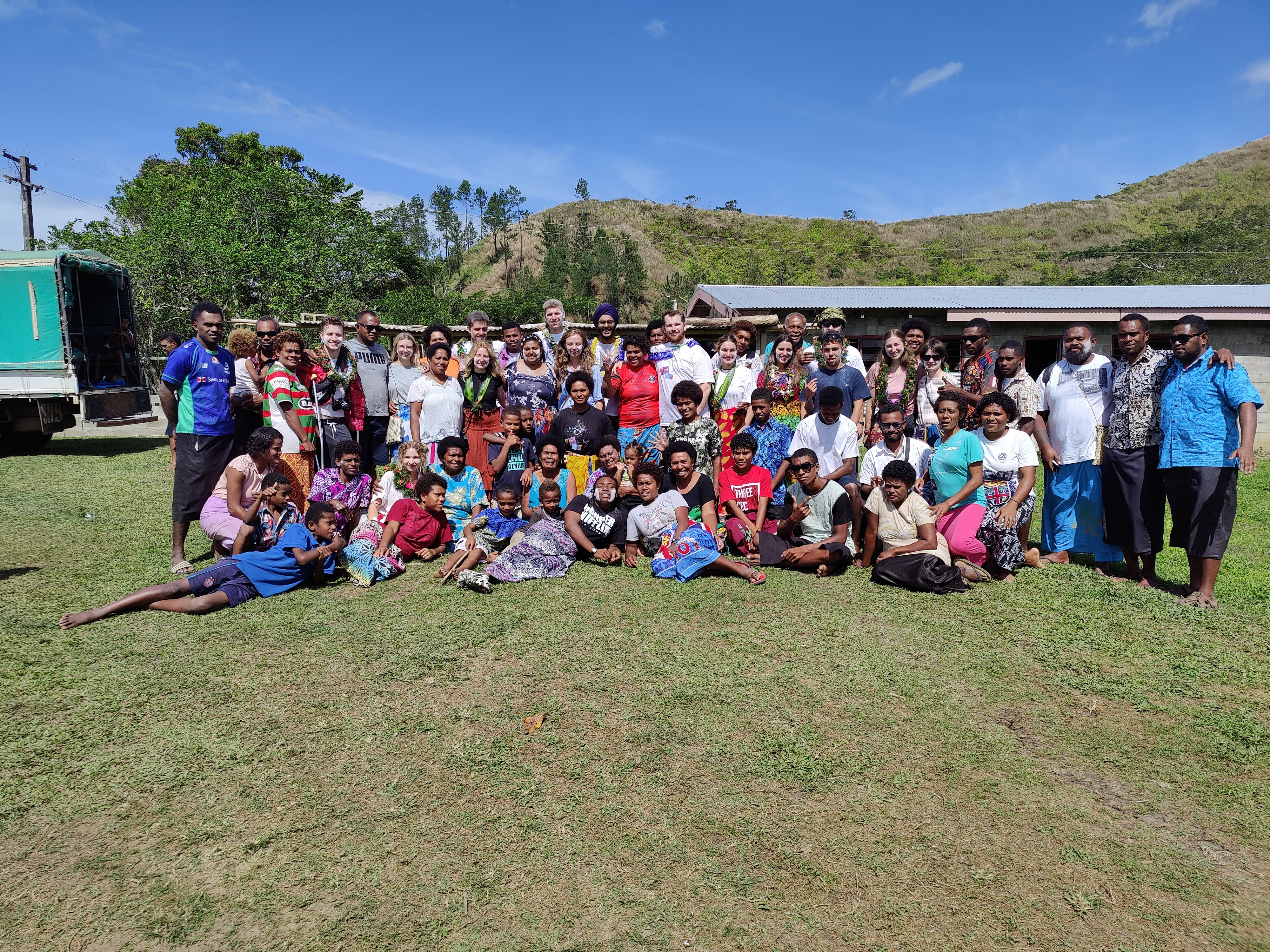
Before my arrival, I had been overwhelmed by my uncertainty; now, I saw the value of embracing the unexpected, unfamiliar, and uncertain.
I feel so lucky to have spent the summer in Rarabasaga and to have met so many amazing people. If you are interested in supporting this incredible community, please consider donating to our campaign to help the village build flush toilets: https://www.justgiving.com/crowdfunding/rarabasaga2022
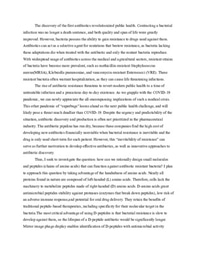
Please sign in
If you are a registered user on Laidlaw Scholars Network, please sign in